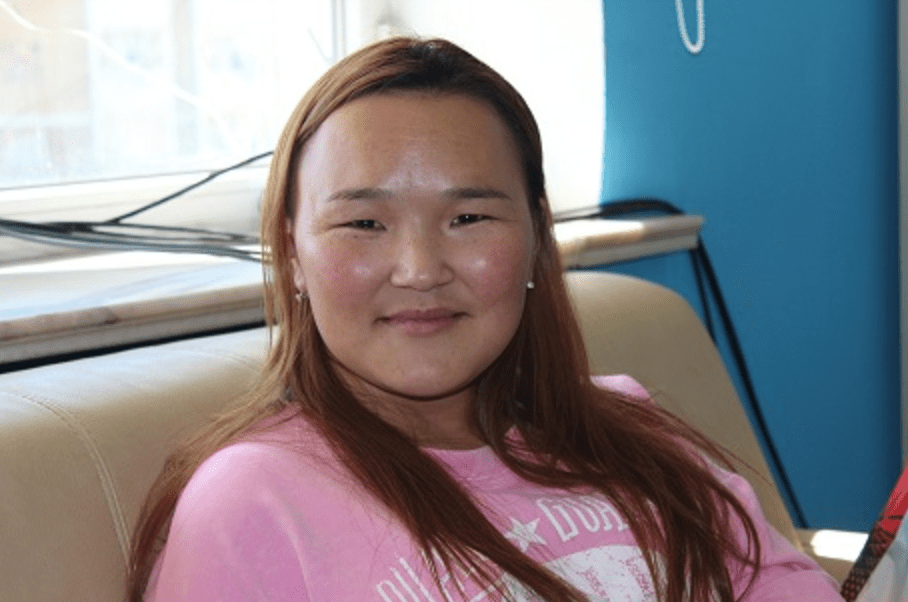Meet B.Uuganjargal, a young woman who decided to work with the Youth Development Center of Bayankhongor to start a support group for young who live with disabilities.
B.Uuganjargal says she had never heard of a support group for young people with disabilities before last year, and in fact didn’t know of many other people with disabilities in her community.
That all changed when in December 2015, B.Uuganjargal , who herself has a visual impairment disability, attended a 2-day conference on disability support in Bayankhongor. Also in attendance at the conference was Coordinator of Bayankhongor’s UNFPA/ SDC supported Youth Development Center (YDC). B.Uuganjargal approached the Coordinator and presented the idea of developing a Support Group for young people with disabilities to share their experiences, their lives and what was important to them.
Today, there are 25 members of the Support Group for young people with disabilities at the YDC. The group is always encouraging new members to come along, where they receive a warm welcome into the group.
Participating in YDC activities, such as Life Skills Education training, has been beneficial to Group members. B.Uuganjargal says that the Self-Esteem module really taught her about self-respect and confidence, “Comparing my life now to previously, when I would say at home worried, stressed and envious of other people’s lives, I am much stronger and happier today. My husband and daughters have even noticed the difference in me”.
Not only does the group provide support, comfort and information to each other, but they also initiate positive development activities to give back to their community. Recently, the group initiated the idea to promote a clean and green environment by engaging community businesses and local government in tree-planting and litter collection across the aimag. The Support Group presented a proposal to UNFPA Implementing Partner, Centre for Citizenship Education, who supported their initiative. In May of this year, the Support Group planted 75 trees, followed by local businesses and local government who took up the initiative and did the same. Ultimately, 18 organizations and 400 people participated, planting hundreds of trees and cleaning over 9000 square meters across Bayankhongor.
B.Uuganjargal says, “Our community is able to benefit from the support group for youth with disabilities at the same time that we benefit from being together and supporting each other”.
Limitations in educational and employment opportunities for youth with disabilities have been a real challenge faced by members of the support group. But within the group they are able to share their individual talents. “We may not all have the academic knowledge, but we have so much life experience, skills and abilities to share”. Since joining the group, B.Uuganjargal has learnt leather craft and is able to make a horse saddle and binoculars case, which she has been able to sell to support her family.
The Bayankhongor YDC’s Support Group for Youth with Disabilities is a shining example of how youth in Mongolia are leading Sustainable Development Goals using creativity, initiative and partnerships. Through their activities, the Support Group works toward achieving reduced inequality, creating decent work opportunities, sustainable cities and communities and promoting environmental protection now and into the future.
Through the Youth Development Programme, the UNFPA, the Government of Mongolia, the Swiss Agency for Development and Cooperation, the Government of Luxembourg, and Oyu Tolgoi LLC have established 16 Youth Development Centres (YDCs) throughout the country to provide young people with opportunities for training and coaching on life-skills; peer counseling; information on and services in sexual and reproductive health; and support in education, communications and psychology; all while in a fun, safe and nurturing environment. These YDCs have since reached hundreds of youth between the ages 15-35, from different circumstances and with different challenges, often in under-served communities, and have helped set them on the path to positive personal development, empowerment and advocacy. The "Young Voices" series documents their experiences and shares their stories
By: Lizzi Logan


